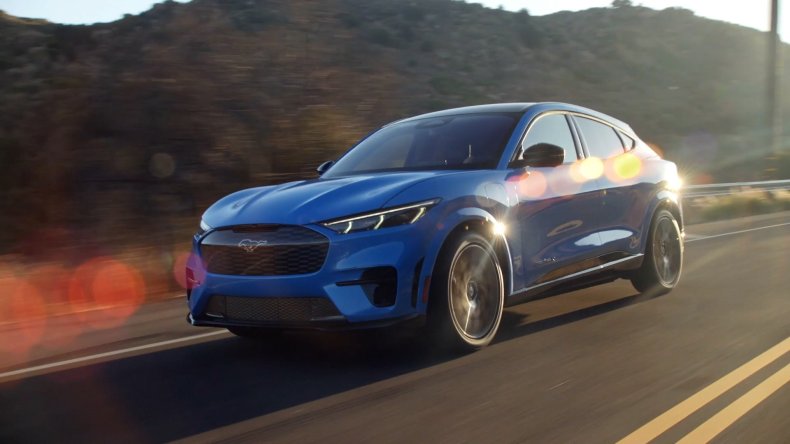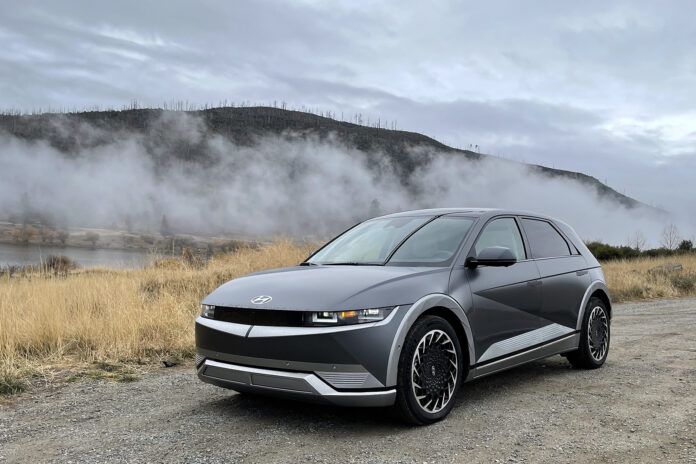The Inflation Reduction Act (IRA) was meant to spur production and sales of electric vehicles (EVs) with tax credits for buyers and funds for charging infrastructure. The act, signed into law in August of 2022, comes with a loophole that allows lessees to receive the full tax credit on any new EV lease.
Traditional car buyers are bound by stringent customer income eligibility, vehicle materials sourcing and EV pricing guidelines. Where a customer and model meet on the matrix determines how much of the tax credit they are eligible to receive, with a maximum $7,500 tax credit.
Lessees are eligible for that $7,500 credit on any new EV.
The way the rule was written, all lease vehicles are classified as commercial vehicles, and commercial vehicles aren’t required to abide by any of the IRA rules. That means that any battery-electric or plug-in hybrid electric vehicle lease with a 7-kilowatt hour battery or bigger will be eligible for the full credit.
Eileen Falkenberg-Hull
“Essentially, the IRS determined that leases are commercial sales. The bank providing the funding is the commercial entity buying the car. That subjects leases to a more lenient set of requirements for commercial purchases,” Sean Tucker, senior editor at Kelley Blue Book told Newsweek.
J.D. Power says that the loophole has made leasing the least expensive way to procure a new vehicle, over buying a model outright. But analysts don’t predict automakers will change their strategy based on the loophole, nor continue to source battery materials from nations unfriendly to the U.S.
“Production is based on capacity and demand. Based on our EV Ownership Study, tax credits and incentives are the top purchase reason among mass market consumers. Making those incentives more widely available is appealing to what’s driving EV consumers,” Elizabeth Krear, vice president of electric vehicle practice at J.D. Power told Newsweek.
“The tax credit lease provision, could make certain EV’s more affordable, and influence EV adoption for those vehicles and/or individuals that would not qualify under the purchase requirements.”

Ford
J.D. Power, and other like outfits, will be tracking which automakers and dealers pass those savings on, and which ones do not. Vehicles like the Hyundai Ioniq 5, BMW iX, Mercedes-EQ EVs and others, which are cut out of the incentive program for traditional buyers, will be on a level playing field with domestic manufacturers when it comes to leases. It was those foreign automakers that lobbied for the cutout.
“The catch is that the bank is the one claiming the tax credit, and there’s no law that says they have to apply it to the purchase price. But we’re already seeing some of the automakers’ financing divisions using this to bring down prices on leased cars,” said Tucker.
The loophole has already increased the number of leases in the U.S. Since the eligibility requirements of the inflation reduction act took effect in January, J.D. Power has seen the ratio of EV purchases to EV leases, called the EV Lease Mix, surge. In April, EV Lease Mix was 41 percent, compared to 10 percent in December.
Leases were 28 percent of Hyundai Motor Co.’s EV sales in the U.S. during the first quarter of 2023, five times its rate over all of 2022. In March alone the lease rate rose to 34 percent, up from 18 percent in March 2022.
Before the IRA passing, Hyundai and Kia were second in the U.S. in EV sales behind Tesla. But since the credits went into effect its EV sales dropped below General Motors and Ford, which sell numerous $7,500-eligible models.


